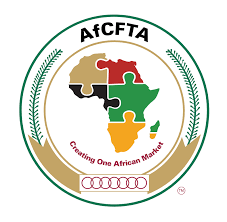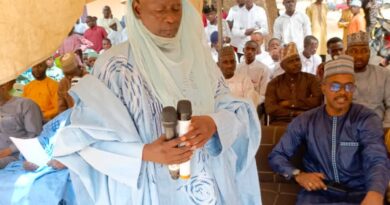AfCFTA : Leveraging Free Trade Area to Boost Youth Impact in Africa – Olasupo Abideen
Recently, the African Institute for Economic Development and Planning (AIEDP) and ambassadors of the African diplomatic corps called for speedy implementation of the African Continental Free Trade Area (AfCFTA) and the Single African Air Transport Market (SAATM). The Institute underscored the importance of the project as it urged member countries to show more commitment to removing barriers in the implementation of both projects.
Though a huge but achievable milestone, AfCFTA is potentially the world’s largest free trade area bringing together the 55 countries of the African Union (AU) and eight (8) Regional Economic Communities (RECs). The project is set to create a single continental market with a population of about 1.3 billion people and a combined GDP of approximately US$ 3.4 trillion.
It’s particularly surprising that Nigerians especially its youth are not yet basking on the euphoria of a potential reality of the African Continental Free Trade Area despite more African countries ratifying Africa’s flagship project. Beyond the huge opportunity to accelerate intra-African trade and boost Africa’s trading position in the global market, there is a better prospect of strengthening Africa’s common voice and policy space in global trade negotiations. However, it seems the lack of knowledge or inadequate information dissemination about the AfCFTA is not doing justice to its cause.
Looking at the heterogenous nature of policies and diversity of implementation despite the homogeneity the region shares in various facets of endeavor, it’s worrisome that the region is yet to explore regional value chains and clusters that will create linkages and synergies among different sectors and countries. There is no gainsaying that, with effective collaboration, the region can also promote green and circular economy practices that minimize environmental impacts and optimize resource use.
The opportunity will encourage some level of interoperability in the area of trade, service provisions, and industrialization by leveraging modern-day technology will go a long way in fast-tracking the development of the region at a similar pace. Beyond these benefits, young people in the region can particularly leverage a potentially expanded market by offering innovative services in the area of Finance technology, digital services, education, Digital health, tourism, entertainment, and e-commerce. The achievability of this can even be boosted by scaling knowledge-base and timely information on market conditions, trade regulations, standards, procedures, and opportunities in different countries and sectors.
While the benefits of removing trade barriers in the African region are timeless, individual countries like Nigeria first need to address the challenges that may hinder the optimal utilization of the free trade area. There is no doubt that Nigerians seem to have hacked the business terrain within the country but the same cannot be said about their knowledge and skills to compete in regional and global trade. They also face skills mismatches and gaps that limit their employability and productivity largely due to inadequate access to quality education and training that could equip them with the skills and knowledge required for the AfCFTA stage.
Despite the advantage of exploring a free trade zone, navigating around and outside the region needs adequate financial and infrastructural resources which has remained an Achilles heel with many young people having business ideas without the requisite resources to execute them. Ultimately, the limited influence of young people in the policy-making and implementation processes, especially at national and regional levels may also impact on their participation at the big stage.
While the AfCFTA project is still gathering momentum, Governments at national and subnational levels have the opportunity to adjust to policies that will ensure that this project is indeed a symbiotic relationship. Thus, there must be some level of intentionality in creating conducive policies and regulations that will facilitate effective youth participation at the bigger stage. Also, considering that virtually all sectors are set to benefit from this, there is a need to galvanize key stakeholders in those sectors to ensure proper coordination in charting pathways for the optimum utility of the free trade area in Africa. This for instance includes the private sector which can in fact provide entrepreneurship and employment opportunities for young people geared towards preparing them for regional and global trade.
In a nutshell, lifting trade barriers will contribute to uniting policies, and regulations which could potentially lead to uniformity in the system of governance in the region. This will increase the unity in the voice of the African region on the global stage. Thus, Civil Society Organisations can use this platform to scale their activities to a continental level by raising awareness and advocating for nations to commit to AfCFTA thereby promoting the rights and interest of the region’s growing youth population. This can be achieved by organizing symposiums and facilitating dialogue and cooperation among youth and other stakeholders.
Ultimately, all hands must be on deck to lay a strong foundation for sustainable and inclusive socio-economic development, gender equality, and structural transformation of member states. Finally, Nigeria specifically must put all mechanisms in place to benefit from the emerging industrial development through diversification and regional value chain development, agricultural development, and food security.
Olasupo Abideen is a good governance, youth investment, and public policy enthusiast. Abideen serves as the Kwara State coordinator of the NotTooYoungToRun movement and Global Director, Brain Builders Youth Development Initiative.
Please send comments and feedback to [email protected]
He tweets @opegoogle



